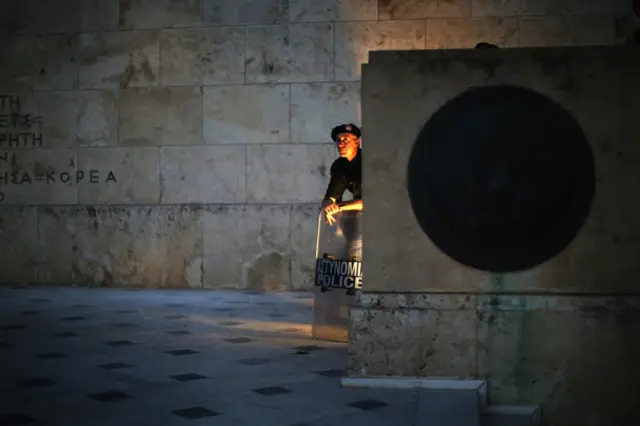Thank you and goodnightpublished at 23:34
That's it for today - we're ending our coverage of the Greek debt crisis on this page. You can follow the latest developments on the BBC News website, where we shall be reporting on the details of the reform proposals submitted by Greece. The country's creditors will examine the plans, and decide whether they meet the requirements for a further bailout - and a lifeline for an economy on the brink. We leave you with an image of a riot policeman, standing guard at a demonstration in central Athens as the sun sets.
 Image source, Getty Images
Image source, Getty Images


